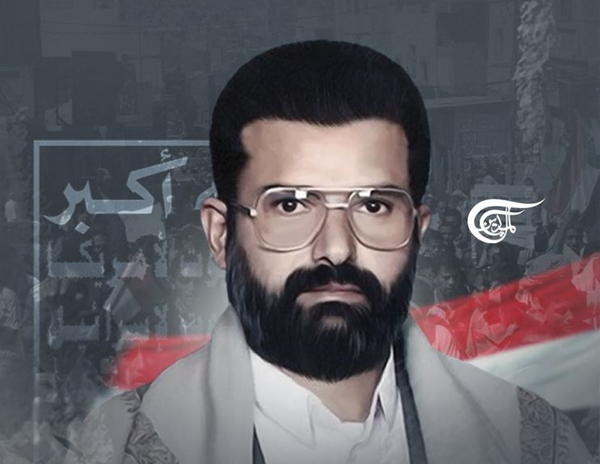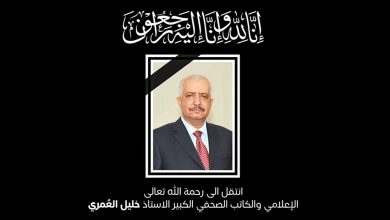The Perspective on History Among Ansar Allah

Mujahid al-Suraymi — Sana’a:
Perhaps the most prominent guidance that the martyred leader (may he rest in peace) emphasized in his series of lessons from the guidance of the Qur’an is the manner in which one should approach historiography — reading it and researching it. No historical question is raised without the listener and reader being presented with a fair, historical reading: a reading that distances itself from any sectarian or doctrinal whims, and that studies the movements of important and great historical figures as purposeful movements aimed at achieving higher ends — foremost among them the pleasure of God, establishing monotheism on earth, instituting justice and removing oppression from the oppressed whatever their schools of thought or intellectual references. Oppression and confronting it do not belong to one person over another, since this teaching springs from the plain words of the Qur’an that address the Prophet in Sūrat al-Anbiyā’ verse (17), saying: “And We did not send you except as a mercy to the worlds.” And what does mercy mean in the field of action except unifying fronts against the oppressors and the arrogant no matter their identities and affiliations?! Because injustice and arrogance do not belong to one side and not another, or one group and not another.
The methodology of the march and of the revolutionary project does not criminalize nor deny the transmission of historical events, but it rejects the sacralizing of those events and lingering on them in a way that sows discord and division and strikes at unity of ranks. This requires us, as members of this project, not to adopt any historical issue or events except after we have thought about the objectives of those events, their purposes and causes.
You will not be truly Qur’anic except when your outlook, culture, and ideas drawn from history are based on a purposive and fair reading, distant from whims and personal, sectarian, and doctrinal starting points; for such a reading is able to make our history into a book full of what will enable us to build a bright future and a constructive civilization, to move from the captivity of the dead into the sky of the living so that we may draw the present for them with the authenticity of the past and the culture of the present. Every era has its people and they are responsible for it. The Qur’an confirms — when it recounts the stories of earlier peoples — several matters, most importantly:
- Taking lessons and admonitions from those stories.
- Drawing inspiration from the laws and patterns that govern history.
- That those nations earned what they earned and suffered the consequences of what they did — which means not importing the historical problems of that era or the past into our present and living them without attending to their repercussions, studying their problems and the roots of their emergence, examining their intellectual treasures, their methods, sifting the chaff from the grain, and benefiting from that for our present. We are not concerned with their acts per se but with taking heed from them and taking what leads along the straight path, and not repeating what they did that led to their division, the disappearance of their identity and civilization, and the loss of their gains and intellectual achievements; and distinguishing the true makers of history from those who forged it, documenting sources and identifying trustworthy ones from others.
Historical patterns (sunnas) are necessities whose manifestation occurs as a reality upon human will and choice; they are the cause by which the complete cause is fulfilled. Whoever walks contrary to these patterns will reach a turning point at which things will reverse against him and the course of the march will return to its natural trajectory.
The attribution that belongs to God requires, as the martyred leader says, surrendering ourselves as students in God’s school. Our job is to clarify the truth and make it clear, to present arguments and counter-arguments and discuss them, to debate everyone, and to explain the methods and ways of reaching the truth — not to impose upon people a truth that we think we see. Truth as a fixed principle exists, but it has gradations open to questioning, and people have different capacities and levels in perception and knowledge. Giving people the means, method, and tools to uncover the contours of truth, and leaving them the right to experiment, err, learn, take heed, discover positions and refute them, and to possess the ability to criticize and evaluate in ways that develop their minds and give them autonomous power and capability to repel suspicions and refute corrupt views, and to verify information and knowledge with scientific methods that rely on evidence and proof, is better than turning them into a herd, domesticating them, teaching them what you want, or directing them with curricula you impose as absolute truth.
The school of authentic Islam raises soldiers of knowledge in every field, unlike the school of humanized Islam and the pharaonic, tyrannical, arrogant tendency, which wants only to raise ignorant, rude soldiers without intellect, will, or freedom to decide and choose. By knowledge the prophets won people’s hearts and penetrated their minds, while force and cultural militarization was Pharaoh’s method when he said: “I show you only what I see, and I guide you only to the way of uprightness” — a statement he spoke in the presence of Prophet Moses, who despite his prophethood did not utter what Pharaoh did. Pharaoh considered himself the owner of truth and the right to exclude every opposing view and to impose his view as the sole path to guidance. His fate was drowning, like the fate of Noah’s people, who dulled their minds and followed the way of their fathers and ancestors like a herd; God drowned them for the danger of their method in disabling and excluding reason and imposing their unilateral methodology by force on their environment.
The culture and project of our march and our jihadist, messianic revolutionary movement oblige us to work to build a human being capable of reasoning, aware of what he wants, and choosing freely — in a free space, but a freedom disciplined by the principle of evidence and proof, not unchecked. An objective scientific freedom seeks to uncover the truth; it does not seek to impose it. The Qur’an argued with and debated all opinions under the principle “Bring your proof,” not your whims, inclinations, and tastes.







